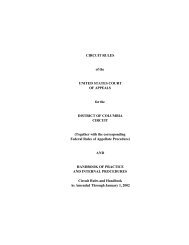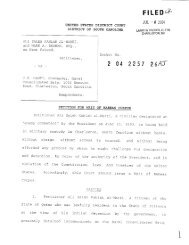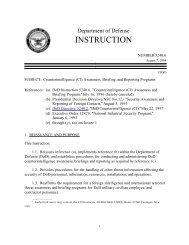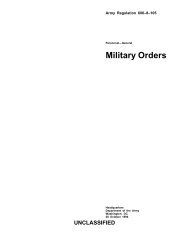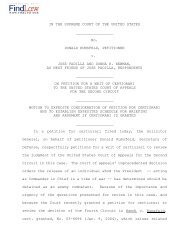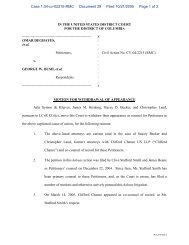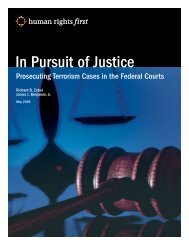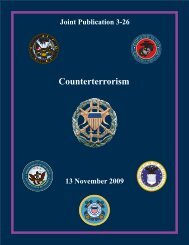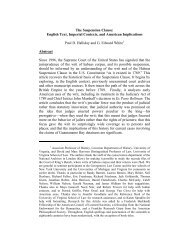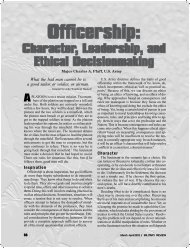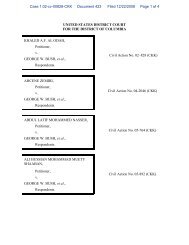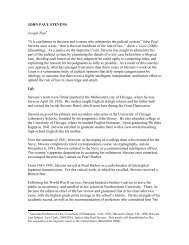Government Merits Brief - Hamdan v. Rumsfeld
Government Merits Brief - Hamdan v. Rumsfeld
Government Merits Brief - Hamdan v. Rumsfeld
You also want an ePaper? Increase the reach of your titles
YUMPU automatically turns print PDFs into web optimized ePapers that Google loves.
23<br />
The President’s inherent authority to establish military<br />
commissions is reflected in the actions of Congress and the<br />
courts in this context. The elliptical manner in which Congress<br />
acknowledged military commissions and left them undisturbed<br />
in Article 21 of the UCMJ—as opposed to authorizing<br />
them directly in plain terms of affirmative authorization—acknowledges<br />
that congressional authorization was not<br />
necessary and was not present during most of the first 125<br />
years during which the executive employed such commissions.<br />
Likewise, as this Court explained in Quirin, “the detention<br />
and trial of petitioners—ordered by the President in the declared<br />
exercise of his powers as Commander in Chief of the<br />
Army in time of war and of grave public danger are not to be<br />
set aside by the courts without the clear conviction that they<br />
are in conflict with the Constitution or laws of Congress.” 317<br />
U.S. at 25. Petitioner has not come remotely close to making<br />
the necessary showing that Congress intended to limit the<br />
President’s inherent authority to establish military commissions<br />
in this context. 4<br />
C. Al Qaeda’s Wholesale Disregard For The Law Of War<br />
Does Not Exempt It From Punishment For Violations<br />
Of The Law Of War<br />
Petitioner contends (Br. 30-36) that the law of war does<br />
not apply to the current conflict with al Qaeda, a foreign terrorist<br />
organization that engages in systematic violations of<br />
the law of war to accomplish its ideological and political goals.<br />
That contention is seriously mistaken.<br />
4<br />
Petitioner states (Br. 12) that Quirin held that the “authority to establish<br />
commissions rests with Congress.” Quirin, however, expressly declined to<br />
settle questions about the relative powers of the political branches over military<br />
commissions in a case in which both the President and Congress (through<br />
Article 15 of the Articles of War) had sanctioned their use.



